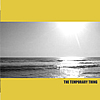The secret to maintaining artistic integrity is easily spoken of, yet is far less easily executed – put yourself out there and bear your soul. You might not become the next band on the Ryan Seacrest show, but at least you’ll be able to say that you crafted your music with sincerity. This is the kind of thing written in the bio for The Temporary Thing: a six-piece band from Los Angeles who’s latest offering The Yellow One boats “sincere and meaningful songs that are full of originality.” Unfortunately, that statement – lifted directly from the bio supplied by the band – could not be further from the truth.
This is not bad music, however. When a band finds their inspiration in artists like U2, Bob Dylan, Nick Drake, and Bruce Springsteen, one could say that they are definitely headed in a noble direction. It is all too easy these days to emulate bands like Nirvana and Tool, thus adding to the surfeit unoriginality that infects contemporary ‘alternative’ music. Fortunately, The Temporary Thing does not go that route, and they deserve ample credit for picking some uncommonly emulated artists.
Therein lies the problem, though: oftentimes the influences are so transparent on this new record that it is easy to forget you’re listening to a contemporary band. The first track, “Time is Slipping Away,” shares a strikingly similar progression with U2’s hit “Beautiful Day.” The Edge-like guitar sound and soaring synthesizer are certainly present, and are revisited frequently throughout the album. With the exception of its two-minute piano intro, “It Starts Today” also revisits elements of U2 and Springsteen chart-toppers with a pseudo-anthemic quality.
Andrew Gleason manifests his Springsteen influence mostly with his voice, which soars over the music with a graceful authority that is not unlike Bono, and is tempered with the gravely and distinctly American quality of Springsteen. Gleason’s song writing reflects Dylan and/or Drake in the same way that Bright Eyes or Modest Mouse do; tracks like “Black-Eyed June”and “Who’s Crying Over Who” sound like b-side tacks from the aforementioned artists’ respective catalogues.
This album sounds like The Temporary Thing is trying for something very specific, and through that they unfortunately lose any sense of originality and completely discard sincerity. The album is a truly exquisite exposition of musical influence, but the extent of influence exhibited on this record suggests that The Temporary Thing has nothing new to say; it is just what their predecessors have already said so well before them. Would that bands like this find their own sound as opposed to someone else’s.

